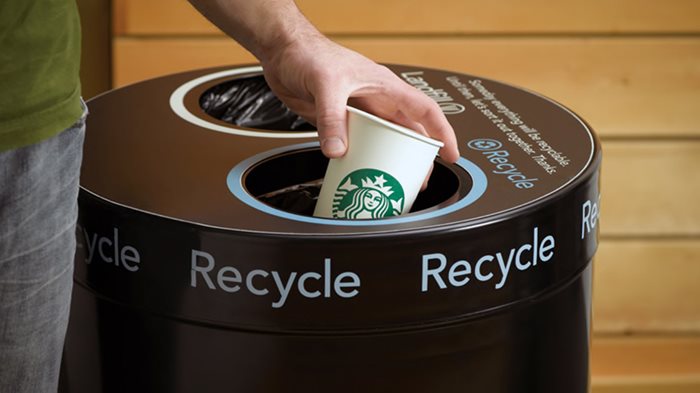CEO Kevin Johnson unveils plans for Starbucks to become ‘resource positive’ by 2030 through expanded plant-based menus, reduced single-use packaging and more efficient supply chains

Starbucks has pledged a 50% reduction in waste sent to landfill by 2030
In a public letter to company stakeholders, Johnson outlined measures to significantly reduce Starbucks’ environmental impact globally. Set to be formalised on the coffee chain’s 50th anniversary in 2021, Johnson revealed preliminary targets for the coming decade, including a 50% reduction across carbon emissions from direct operations and supply chains, water consumption, and waste sent to landfill.
“As we approach the 50th anniversary of Starbucks in 2021, we are looking ahead with a heightened sense of urgency and conviction that we must challenge ourselves, think bigger and do much more in partnership with others to take care of the planet we share,” Johnson said.
World Coffee Portal
research shows environmental and ethical considerations rising to prominence among both consumers and café businesses. In the
US, where Starbucks holds a 40% share of the 37,000+ branded coffee shop market, 45% of consumers surveyed in 2019 indicated they would be willing to pay more for sustainably-sourced coffee. Three-quarters of industry leaders surveyed agree sustainability and environmental issues affect their business to a large or moderate extent.
Pledging a ‘scientific approach’ to achieving its goals, Starbucks has partnered with sustainability consultancy, Quantis, to measure its environmental impact and the efficacy its sustainability policies. In 2018 the world’s largest coffee chain emitted 16 million tons of CO
2, withdrew 1 billion cubic metres of water and produced 868 kilotons of waste, including 6 billion disposable cups, across its global 31,000-store business.
Meeting the ambitious sustainability targets across its growing portfolio, especially in markets where Starbucks is rapidly expanding, such as China, will prove challenging. In 2015 the coffee chain missed a target to make 25% of its cups re-usable, and again missed a revised target to serve 5% of all beverages in personal re-usable cups.
Nevertheless, Starbucks has significant resources at its disposable and is experienced in running sustainability initiatives. The coffee chain released its first Corporate Social Responsibility Report in 2001 and succeeded in a 2008 goal to purchase enough renewable energy certificates to power all its company-operated stores by 2015.
